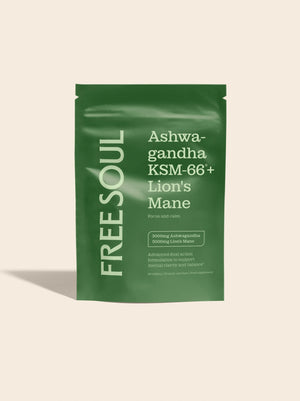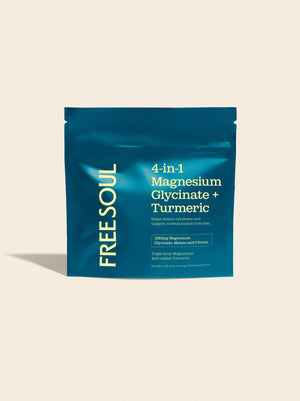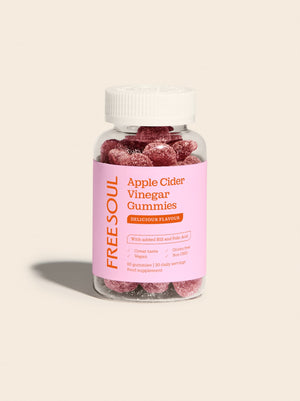Female hormone health is complex and from the onset of puberty, through the reproductive years, to menopause, a woman's body undergoes various hormonal changes. While we often hear about hormonal fluctuations during puberty, a deeper understanding is lacking of the monthly changes that take place during our cycle and the intricate relationship between nutrition and hormonal balance.
Understanding Female Hormonal Health
Hormones are chemical messengers in our body, and for women, they play a crucial role in almost every aspect of health — from regulating menstrual cycles to maintaining pregnancy, and even influencing mood, energy levels, and overall well-being. The primary hormones involved in female reproductive health are oestrogen and progesterone, alongside others like testosterone and the follicle-stimulating hormone (FSH).
The Changes During a Woman's Life
From the onset of puberty, through the reproductive years, to menopause, a woman's body undergoes various hormonal changes. Puberty marks the beginning of menstruation and reproductive ability, a phase regulated mainly by fluctuations in oestrogen and progesterone. During the reproductive years, these hormonal levels ebb and flow in a monthly cycle, leading to menstruation when pregnancy does not occur.
As a woman approaches her late 40s or early 50s, she enters the perimenopause phase, eventually leading to menopause, the cessation of menstrual cycles. This transition is marked by significant hormonal changes, most notably a decline in oestrogen levels, affecting various aspects of health and wellbeing.
PMS and Its Implications
Premenstrual Syndrome (PMS) encompasses a variety of symptoms that many women experience in the week or two before their period. Symptoms can range from mood swings and irritability to bloating, headaches, and fatigue. The exact cause of PMS is not fully understood, but hormonal fluctuations during the menstrual cycle play a significant role. Lifestyle factors, including diet, stress, and physical activity, also influence the severity of PMS symptoms.
The Role of Diet and Lifestyle in Hormonal Health
Scientific evidence supports that diet and lifestyle have profound effects on hormonal health. Nutritional imbalances can exacerbate hormonal fluctuations and symptoms, while a balanced diet rich in certain nutrients can provide significant relief and support.
Nutritional Strategies for Hormonal Support:
Balance Your Blood Sugar: Fluctuations in blood sugar levels can worsen hormonal symptoms. Focus on a diet rich in whole foods, fibre, protein, and healthy fats to maintain stable blood sugar levels.
Increase Omega-3 Fatty Acids: Found in fatty fish, flaxseeds, and walnuts, omega-3s are known to support hormonal balance and may help reduce symptoms of PMS and menopause.
Eat Magnesium-rich Foods: Magnesium has been shown to improve PMS symptoms such as cramps, mood swings, and fatigue. Include more leafy greens, nuts, seeds, and whole grains in your diet.
Don’t forget B Vitamins: Particularly B6, has been linked to reduced PMS symptoms. Oats, bananas, legumes, and poultry are excellent sources. Our hormone balancing Vegan Protein Blend is a great way to increase your protein intake and includes vitamin B6 and B12.
Stay Hydrated: Water plays a critical role in every bodily function, including hormone production and detoxification.
Limit Processed Foods and Sugar: These can exacerbate hormonal imbalances and symptoms related to PMS and menopause.
Regular Physical Activity: Exercise can help balance hormones, relieve stress, and improve your overall quality of life.
Stress Management: Chronic stress can wreak havoc on your hormonal balance. Practices like yoga, meditation, and deep breathing can be highly beneficial.
Fibre’s Role in Hormonal Balance
Dietary fibre plays a pivotal role in hormonal health by supporting digestion and promoting a healthy gut microbiome. High-fibre foods, such as fruits, vegetables, legumes, and whole grains, help regulate blood sugar levels, which is crucial for maintaining hormonal balance. Fibre also assists in the excretion of excess hormones, such as oestrogen, through the digestive process, preventing reabsorption and ensuring hormonal equilibrium. Free Soul Greens is blended with naturally occurring fibre-rich ingredients that support your digestion.
Gut Health: The Foundation of Well-being
The gut microbiome, the vast community of microorganisms living in our digestive system, is fundamental to overall health, including hormonal balance. A healthy gut contributes to efficient digestion, nutrient absorption, and immune function. It also plays a role in synthesising certain vitamins and regulating inflammation. Disruptions in the gut microbiome can lead to a cascade of issues, including hormonal imbalances, exacerbating symptoms of PMS and menopause.
The Estrobolome: A Key Player in Oestrogen Balance
The Estrobolome refers to a collection of gut bacteria capable of metabolising oestrogen. This function is crucial for maintaining appropriate oestrogen levels within the body. A healthy Estrobolome ensures the proper excretion of oestrogen, thus preventing oestrogen dominance, which is linked to various symptoms and conditions, including severe PMS, menstrual irregularities, and increased risk for certain types of cancer.
Nutritional Strategies for Supporting Gut Health and the Estrobolome
Diversify Your Diet: Consuming a wide range of plant-based foods can enhance the diversity of your gut microbiota, supporting overall health and hormonal balance
Incorporate Fermented Foods: Foods like yoghurt, kefir, sauerkraut, and kimchi are rich in probiotics, which can help support the health of the gut microbiome and, by extension, the Estrobolome.
Prebiotic Foods: Foods high in prebiotic fibres, such as garlic, onions, green bananas, and asparagus, nourish beneficial gut bacteria and support the estrobolome's role in oestrogen metabolism.
Limit Antibiotics and NSAIDs: These can disrupt the gut microbiome if used excessively. Always follow medical advice when using these medications.
Navigating the complexities of female hormonal health can be challenging, but with the right nutritional and lifestyle strategies, it's possible to alleviate many of the symptoms associated with PMS and menopause. Remember, every woman's body is unique, and what works for one may not work for another. Listening to your body and consulting with a qualified nutritional therapist can help tailor these strategies to best suit your individual needs.








